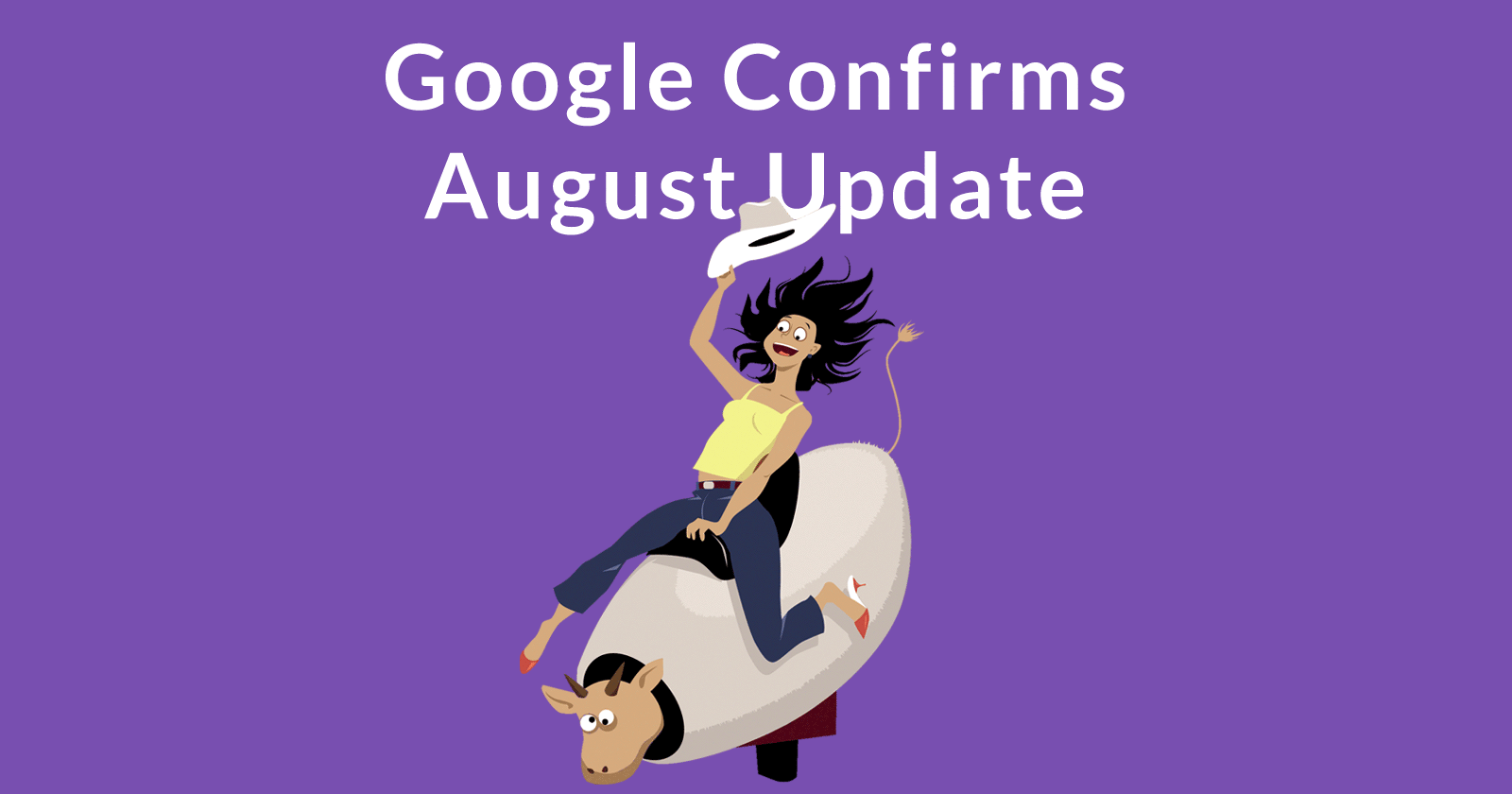Google’s Danny Sullivan confirmed today via a tweet that a new Google broad core algorithm update has rolled out.
The WebmasterWorld forum has been filled with discussion about the changes.
Let’s explore what Google changed, will it last and what you should you do.
Google’s Official Statement
The purpose of Google’s official statement was to communicate four insights:
- Confirmation that an algorithm update happened.
- Confirmation that this is a major algorithm update.
- Communicate that the change was to improve how Google matches relevant results to search queries.
- Sites that lost rankings did not lose rankings because of poor quality.
Here is Google’s official statement:
This week we released a broad core algorithm update, as we do several times per year. Our guidance about such updates remains the same as in March, as we covered here: https://t.co/uPlEdSLHoX
— Google SearchLiaison (@searchliaison) August 1, 2018
Google’s Follow-up Statements
Google’s Danny Sullivan followed up with an additional statement to answer a question asking for more specifics. Danny Sullivan declined to issue specific guidance on what to fix. And really, how could he when Google insists there is nothing to fix?
Sullivan’s first follow-up statement:
We tell lots of things to do. Improve site speed. Consider secure. Etc. But that’s not what this update was about. It’s broad. And respectfully, I think telling people there’s no particular thing to “fix” is indeed helpful. It means, hopefully, they think more broadly…
— Danny Sullivan (@dannysullivan) August 1, 2018
His second:
Want to do better with a broad change? Have great content. Yeah, the same boring answer. But if you want a better idea of what we consider great content, read our raters guidelines. That’s like almost 200 pages of things to consider: https://t.co/pO3AHxFVrV
— Danny Sullivan (@dannysullivan) August 1, 2018
Third:
To be really clear, it doesn’t work like that. Raters have no direct input into the algorithm. There’s no “rater score” or anything like that about the sample of pages they review.
— Danny Sullivan (@dannysullivan) August 2, 2018
Fourth:
The data helps us understand how updates seem to be performing. It’s like having someone review the food in your restaurant. But they don’t go into the kitchen & make the food. Rater data isn’t a component of the algorithm.
— Danny Sullivan (@dannysullivan) August 2, 2018
The Meaning of Google’s March Tweet
The purpose of the March tweet announcement was to draw a distinction between a daily improvement that targets a specific area and the more significant broad algorithm updates that affects the entire algorithm.
“Each day, Google usually releases one or more changes designed to improve our results. Some are focused around specific improvements. Some are broad changes. Last week, we released a broad core algorithm update. We do these routinely several times per year”
And more importantly, the guidance issued was in regard to how to respond to these updates.
Here is the text of the follow-up tweet from March explaining that a drop in rankings does not mean there is something to fix in the site that lost rankings.
“There’s nothing wrong with pages that may now perform less well. Instead, it’s that changes to our systems are benefiting pages that were previously under-rewarded….”
Presumably that statement was to head off opportunists in the SEO community who might use the update as a way to advance the idea that there are specific quality issues that explain the ranking drops.
Nothing Wrong with Sites that Lost Rankings?
According to Google, if your site dropped ranking, it is not because your site has a quality issue. Here is Google’s advice in a tweet from March 12, 2018 at 9:57 AM
“There’s nothing wrong with pages that may now perform less well.”
“There’s no “fix” for pages that may perform less well other than to remain focused on building great content. Over time, it may be that your content may rise relative to other pages.”
“…there’s nothing wrong with pages …there’s also nothing specific for you to be improving for that.”
There’s Nothing to Do – So What Should You Do?
Over the course of almost 20 years experience of updates from many search engines, including Google, the best reaction has remained consistent: Wait.
The reason I say wait is because virtually every major update has been followed with a correction, what Google calls a refresh.
As far back as I remember, virtually every major update had false positives or were overly broad. Google then improves the algorithm in order reduce the number of false positives.
Here’s what Google tweeted in March about the refresh:
“We will refresh our systems, but there’s also nothing specific for you to be improving for that.”
Google does extensive quality control before rolling out a major update. But there are almost always false positives and unintended search results.
Here is what you should be doing:
- If you see a bad search result, study it. Try to understand why an irrelevant web page is at the top.
- If your site dropped in rankings, wait. The search results may change. The change may come in days. Sometimes the biggest changes happen in ten to fifteen days.
- If your site dropped rankings, study the top performers. Try to understand why users may feel that site is more relevant. This will give you insight into how the algorithm may have changed.
Remember, it’s not your site that’s done something wrong. Study the SERPs and try to identify why Google thinks that a user may prefer a top ranked site.
To learn more, see our followup post: Google Says Raters Guidelines is Key to Broad Core Update.
Learn more about Google updates in Google Algorithm Updates & Changes: A Complete History.
Images by Shutterstock, Modified by Author





